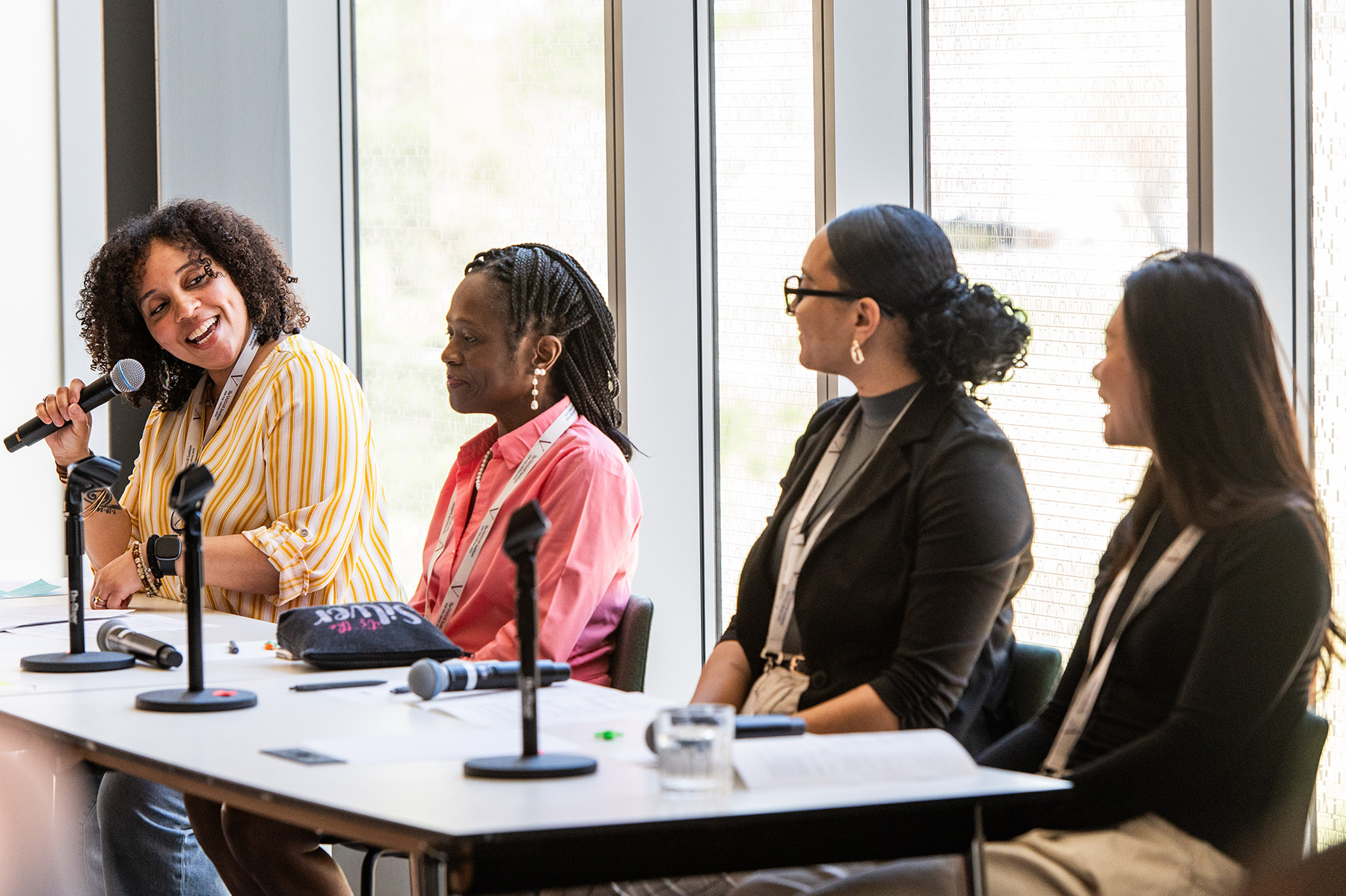Transgressing Borders
Educators from Vassar and the State University of New York at New Paltz hosted a series of workshops on April 18 and 19 at The Vassar Institute for the Liberal Arts aimed at enhancing connections and collaborations with the local community.

The event, titled Transgressing Borders: Reimagining Education and the Role of Learning in Community, was convened by two Vassar administrators, Elizabeth Cannon, Director of the Office of Community-Engaged Learning (OCEL), and Zoë Markwalter, OCEL Research and Program Associate; and Robyn Stout Sheridan and Asilia Franklin-Phipps, Assistant Professors of Education and co-coordinators of the Social Justice Education Program at SUNY New Paltz.
With the goal of bridging communities of knowledge, the program’s vision was to create an incubator for place-based knowledge holders and formal educators to reimagine education through intergenerational and intercultural learning connections. Throughout the weekend, educators, activists, organizers, and community members learned alongside one another, sharing their lived knowledge.
During the event, participants heard from community members engaged in such fields as health care, legal aid, affordable housing, and food justice, and Cannon hosted a panel of educators who discussed ways to integrate college and community resources.
As the event concluded, Cannon said she was certain the insights she heard throughout the weekend would enable her and her Vassar colleagues to find new ways to connect with the community. “This program was a labor of love that began a year ago,” she said, “and we are grateful to have had the opportunity to make so many connections and ways to build and share resources and create new networks. We brought together people of diverse backgrounds from a public institution and a private one, and we all have gifts and talents we can share that will make us feel less divided.”
Franklin-Phipps said the event had inspired her to develop a course in community building that she could offer not just to students at Vassar and SUNY New Paltz, but also to those in the local community. “It will be a course that anyone in the area can take, perhaps through facilities at local libraries,” she said. “I plan to stay connected with many of the people I met this weekend; so many of our interests overlap, and it will be exciting to see what emerges from this event.”
Sheridan said she also planned to stay in touch with many of the educators and community members she had met at the workshops. “I try hard not to have any preconceived notions of how successful a program like this could be, but this was inspiring,” she said. “I hope we can carry on the relationships we formed and do it with joy and laughter. It was a respite from the current political climate to create this space.”
Markwalter shared that as a nontraditional and neurodivergent learner, an immersive experience has been transformational to her success in navigating academic spaces. “Through the mentorship of Asilia and Robyn, the co-convenors, I was able to explore my identities and place-based learnings. This affirmed my own lived experiences that sometimes seemingly disparate things can exist in the same space, at the same time,” she said.
This supported her pilot research on epistemic justice through a framework of compensation equity for place-based knowledge-holders within an academic setting. Through her work with the OCEL, that research focus has been foundational to supporting faculty immersion in building their communities of practice alongside the Poughkeepsie community. “I am truly inspired to witness the relationship-making of learners and educators through this event,” Markwalter added.